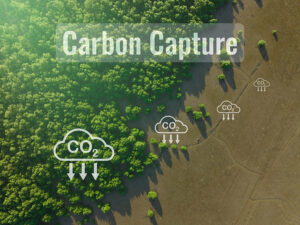EU approves €3 billion Swedish aid scheme for CCS from biomass processing

The measure will contribute to the achievement of Sweden's climate targets and the EU's strategic objectives under the European Green Deal, in particular the 2050 climate neutrality goal, according to EC.
The measure aims to enable CCS as a viable and effective tool to mitigate climate change, and is expected to increase investor confidence in CCS-technology, reduce costs for its future applications and thereby facilitate the development of a CCS value chain in the EU.
Under the scheme, the aid will be awarded through a competitive bidding process, with the first auction expected in 2024.
Auctions will be open to companies that (i) carry out an activity in Sweden, emitting biogenic CO2, and (ii) implement projects with a capacity to capture and store at least 50,000 tonnes of biogenic CO2 per year.
Under 15-year long contracts, beneficiaries will receive a grant per tonne of biogenic CO2 that is permanently stored.
The aid received will be adjusted taking into account possible revenues that might stem from the projects (for example, voluntary carbon removal certificates), as well as other public support received for the same project.
The scheme will run until 31 December 2028.
By enabling capture and storage of significant amounts of biogenic CO2, the scheme aims to contribute to Sweden's efforts to reduce its greenhouse gas emissions by 85% by 2045 compared to the 1990 level.
It will also help Sweden and the EU to meet the objective of achieving climate neutrality by 2050, according to EC.
"This €3 billion scheme will enable Sweden to capture and to permanently store a significant amount of carbon dioxide generated by biomass combustion or processing. It will help Sweden and the EU to achieve their ambitious target of climate neutrality by 2050, while ensuring that competition distortions are kept to the minimum," said Margrethe Vestager, executive vice-president in charge of competition policy.


























